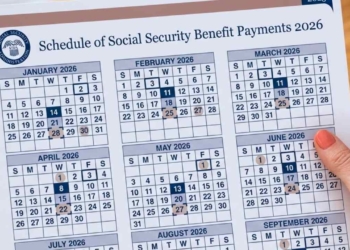In the first place, it is important to highlight that SSI (Supplemental Security Income) is a Federal benefit and it does not receive funding from the Social Security Administration (SSA). It is true that you apply for this Federal benefit on the SSA website, and the Agency will inform you of its decision after checking your case.
To qualify for SSI benefits, your income must be low, and you must also have limited resources. However, being on a shoestring budget will not be enough because there are additional requirements. Bear in mind that you must be in one of the following situations: Applicants must also be at least 65 years old or older, be blind, or have a qualifying disability that meets SSA’s strict definition. Other conditions apply, but these are the most relevant ones.
What is the difference between SSI and SSDI?
SSI is a Federal benefit that is not just for people with a qualifying disability like SSDI, it is also for seniors 65+ with financial difficulties. Thus, the Federal benefit supplements the earnings recipients already have.
SSDI payments are only for those who have worked enough and paid taxes to the SSA. Of course, your disability must last for over a year to be eligible for SSDI. Social Security Disability Insurance payments are higher on average and maximum amounts, too.
But how much can SSI recipients get from the Federal Government? As a matter of fact, an individual can receive up to $967 in 2025. Eligible married couples can collect up to $1,450 if they both qualify. An essential person can receive up to $484 in 2025. The average payment for all recipients is $717 as of April 2025.
Can I receive SSI and SSDI simultaneously?
Many SSDI recipients may wonder if they could also be receiving SSI at the same time. This is possible when your SSDI payment is too low and you do not have other earnings.
So, basically, you meet the income and resources requirements to collect Supplemental Security Income in the U.S. The good thing about the Federal benefits is that it is not taxable, unlike SSDI or retirement benefits.
Another thing you should take into account once you start receiving SSI is the fact that recipients may need to have medical reviews. This is done to check that you remain eligible and that you still have a qualifying disability.
Having a different financial situation can also affect payment eligibility and amounts. For example, if you get married, depending on your spouse’s income and resources, your benefits could either stop, increase or remain the same. Anayway, it is mandatory to report any changes so as to avoid overpayments.
One last thing to know about SSI payments is the fact that the normal payday falls on the first day of the month. Obviously, as long as it does not fall on the weekend or that it is not a Federal holiday.







